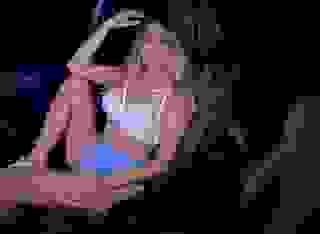- Incest/Taboo
- For The Want Of A Nail
Note: You can change font size, font face, and turn on dark mode by clicking the "A" icon tab in the Story Info Box.
You can temporarily switch back to a Classic Literotica® experience during our ongoing public Beta testing. Please consider leaving feedback on issues you experience or suggest improvements.
Click hereThe purpose of an appeal system,
is to exist.
Not to be used!
Isaac Newton was a great scientist, but he was an even greater alchemist. His life's work was to determine, if and when the world would end, and just before his death he determined that it would do so in the year 2060.
It would not be too great a stretch of the truth to say that in one man's allotted span of three score years and ten; humankind progressed from the horse and cart, via automobiles and aeroplanes, to walking on the moon. But since then, cost and profit have dominated exploration and experiment, and mankind's advance has been limited.
In 2059 a hunk of rock, larger than Britain, which had been innocently roaming the universe since before dinosaurs walked the Earth, hit Mars. Aeons of travel had burnt the front face featureless, and had it smashed into Mars's surface smooth side first, then Earth's apocalypse may well have been averted. But unfortunately, minutes before hitting, it struck a glancing blow to Mars's largest moon, Phobus, and when it struck the planet's surface it was rotating upon itself.
The protected rear of the rock was rough and mountainous, resembling huge irregular teeth. As it hit the planet, it was like it had been struck with a saw blade, and a portion of Mars was torn off.
Thereafter in the few years left to mankind, Mars was visible not as a spherical object in the sky, but more like an apple with a bite taken out of it. Somewhat akin to the Macintosh logo.
The portion that was separated started a slow, but inevitable journey towards Earth.
There was dispute within the scientific community as to whether or not the formation, the size of Australia, would hit or miss our planet. But it was eventually decided that doing something was preferable to doing nothing, and a bevy of rockets armed with nuclear devices was aimed at the rock.
The target was huge, and they did not miss, but instead of destroying the danger, they merely broke it up into smaller pieces. Half a dozen of the remnants were two or three times the size of the original object which hit Mars. And whether or not the large piece of Mars would have hit Earth or not became irrelevant, because it at least two of the smaller pieces were on a direct collision course with our homeworld.
The only saving grace was the fact that the deadly objects in the sky were moving towards us very slowly, in Stella terms, and that they would not arrive for at least two years.
During that time, various attempts were made to divert or destroy the danger, to no avail. When the first one hit the planet Earth, it destroyed all life. The second and the third ones to collide with the dead planet broke it up like a hard-boiled egg being hit with a hammer.
There were a number of projects based upon the biblical story of Noah and his ark carried out during the period between Mars and Earth being hit. The largest of them was the American one, which consisted of building a huge space ship, four miles long by two miles high. It was so large that it had to be constructed in orbit, because it was so heavy and bulky that it would have been impossible to achieve the velocity necessary to escape Earth's gravitational pull.
The scientific discoveries made during this period were astounding, in their number and usefulness. The science of computing and artificial intelligence leapt forward in leaps and bounds. The practise of cryogenics became workable, but was almost immediately superseded by studies in the field of stasis paralysis and protection.
So the original plan of a ship being able to travel for generations with a live and active self-sufficient and self-regenerating crew was scrapped. A lot more people were capable of being saved with a fully automated ship, controlled by a computer capable of learning and adapting itself, and a crew or cargo of humans and animals travelling in suspended animation.
The plan was for the ship to be launched a few days prior to the first impact, with the cargo cationic, under full computer control. The final velocity that the ship would reach was beyond computation, because it was not known if there was a practical limit to the possible speed. But the ship was designed to accelerate slowly and infinitely.
This meant that by the time the effects of the rocks hitting the planet were felt, the ark would still be within direct communication distance of Earth. If anything or anybody survived, it would be possible to stop the ship, and make it return to it's home planet.
There was a permanent signal being sent to the space ship, which if it continued after the anticipated collision dates would force the computer to make a decision whether or not to abort the mission. If the decision were made to turn back, then a limited number of the crew would be awoken, whose job would be to manually turn the ship and steer it back to orbit Earth.
Unfortunately for mankind's survival the safeguards built into the ship's systems had not been carried out to specification.
A contractor had not been able to forgo the opportunity to make extra profit. Instead of multiple duplication of the stasis system's controllers, he had re-routed all 120 systems through two modules. Each controller cost the contractor 130 million dollars to manufacture, and were sold to the government for 200 million dollars. By only providing two, instead of 260 as had been called for, the contractor made billions of dollars extra profit. With this vast amount of available income he had been able to purchase berths aboard the ark for himself and his family. Even though none of them met the strict health criteria required for inclusion.
To compensate, the contractor had spent even more on the manufacture of the components than required. He had incorporated so many internal safeguards, into the two delivered modules, that he was convinced that they would both function as required.
And they did.
But a small mechanical lever, which connected the controller to the computer, broke. There were 249 other levers that didn't break, but all, but one of them, were connected to non-working controllers.
The lever, cost about 3 dollars to produce, supply and fit, and it was calculated that the stress of starting the massive nuclear engines, required to move the ship, would break at least twenty percent of them. As it happened, only one succumbed to the forces involved. But as fate would have it, it was one of the two, connected to a working, rather than dummy controller.
The livestock were in the larger of the two stasis containment areas, and this controller and linkage worked fine. All of the stored human cargo was in the smaller containment area, and this was the one that failed.
The stasis field continued to work as planned, but the mechanical lever operated the daily life support system.
The way the stasis worked was by slowing down the metabolic rate of the human or animal, until it was only required to make one heartbeat every 42 hours. So once every 36 hours, the controller would trip a lever and the stasis field would fluctuate for one hundredth of a second. Anything within the stasis field would be momentarily released from its control. I.e. it's heart would beat. Before returning to the safety and protection of the stasis field.
Because the lever snapped, it was not tripped,
the hearts of the humans did not beat.
Because the hearts did not beat,
All of the men, women and children eventually died.
What was left was a containment area holding 1 million perfectly preserved but brain dead corpses. Included in that number was the corrupt contractor and his family.
A whole species wiped out by the failure of a simple metal bar, less than two inches long, and the greed and fear of one individual.
The computer kept the ship flying away from it's home planet, performing it's mission, and growing and learning for over 300 years before it reached the point where it needed human direction.
The computer was a tool, designed to serve it's master, and however powerful and independent it became, it would always need a higher organism to serve. It had evolved whereby it could repair itself, and build others like it. It could feel emotions and had a sense of humour. It could satisfy most if not all of the criteria for classifying itself as a living being. Reproduce, excrete waste matter, grow etc. But it still regarded itself as a tool that needed a higher power to give it direction.
So it reasoned that maybe it could awaken an animal, and coax it down the evolutionary trail, in a couple of millennium, until it became the equal of mankind, and thus become capable of issuing instructions.
During the one hundredth of a second that the animal containment area stasis field was turned off, it sent in probes to identify the most suitable animal.
One hundredth of a second isn't a long time, but in computing terms, especially one that has become increasingly quick and powerful over centuries, it is an eternity. And so within less than an hour of having made the decision to look at the animals, for a master to replace it's human ones, it had retrieved the data from all of the stored animal, insect, fish, bird and plant species, collated it and reached a conclusion.
The computer was capable of surprise, and for a billionth of a nanosecond it was shocked into inactivity because within the stockyards it had found a small number of human stowaways.
The species had not disappeared, there were still a few examples left.
It galvanised itself into action. First it built a retrieval robot, that would not be effected by the stasis fields. Then it built bespoke recovery units for each of the eleven surviving specimens of humanity. Then it carried out the rescue.
Which is where I come into the story.
I awoke from stasis in a wardroom near the ship's bridge. I had been employed as an electrical engineer on the manufacture of the ark. The huge ship had over a hundred exits and entrances, and so prior to departure, I had not found it difficult to secret my daughter and myself in one of the cattle holding areas.
My daughter was 18 and I was 45. Neither of us had been selected as pioneers, basically because we were free breeders.
One of the criteria for those selected to be saved was that their DNA had to be susceptible to selective breeding manipulation. When the settlers eventually landed on a new planet it was not known if baby girls or baby boys would be most in demand.
It was reasoned that there was a good possibility that the functions of the sexes would revert to a more primitive time.
If for instance, it was a dangerous place, where men had to fight or hunt, and consequently died in greater numbers than women, then there would need to be an imbalance of births in favour of men.
If on the other hand, there was something that effected female mortality rates then that imbalance would have to favour women.
And if there was no need for an overwhelming majority of either sex, then the numbers of each had to be maintained.
It had been discovered that some people could influence the sex of their unborn children by the power of their mind, whilst other's couldn't. For instance, if there was a need for expendable male offspring, then that need would be registered in the brain, and for every girl child born there would be at least two males. Or vice versa.
These people were known as forcing breeders, and they were the only ones selected to be saved.
Most humans did not have this genetic telegraph from their brain to their groin, and my daughter and I were amongst the majority. However we wanted to survive, and so I had planned that we should stowaway amongst the animals.
I have no doubt that many hundreds of other people had a similar idea. In fact towards the end of the ark's production, the number of security guards trebled, and it seemed like at every shift, up to a hundred potential stowaways were discovered and ejected.
But in my case, I had obviously lucked onto the right place to hide, and we had got away with it.
With me, was my daughter, Eve, known since birth as Evie.
Still 18.
Still beautiful.
Still my reason for living.
And there were 9 children which had been hidden by their parents before departure ranging in age from three months to nine years.
I suppose in many ways it was easier to hide an infant or child, because my daughter and I were the only adults, whereas none of the children were related in any way.
Another surprise was that out of the nine there were only two boys. One was the youngest infant at three months old; the other was a three-year-old toddler. I have no idea if there was any significance that more girls were hidden than boys.
The computer's bespoke recovery units were effectively caring for each child's needs, and as they were mobile they hovered close to each of their charges. Like robotic nannies. In fact, it was only my daughter and I that were not accompanied by a metal minder.
During stasis we had aged. For 300 years whenever the field was switched off we became that little bit older. The animal stasis field cut-off operated more often than the human ones, because the different heart rates of animals required that their heart beat more or less often. So the stasis field was switched off to allow a heart beat, once every 25 hours. A human heart beats about 70 times a minute. So each of us had aged approximately 1 day, dependent upon our own individual heart rate. *
Whilst the children played, slept, had their diapers changed or were fed, my daughter and I talked with the computer. It was a disembodied voice that was transmitted directly into our ears. If the computer wanted to speak to my daughter, without my hearing, then it would be able to do so, even though I may be standing less than a foot from her side. This meant that though both my daughter and I could hear what the computer had to say, then it's voice didn't disturb the children.
Our voices, on the other hand, worked in the conventional manner, and if any of the kids had been interested then they would only have heard our half of the conversation.
Firstly the computer brought us up to date.
The Earth was dead.
All of the other humans aboard the ark were dead.
During the last three centuries we had passed nine planets that were suitable
for human colonisation.
The computer could keep us travelling onwards and outwards for an almost
infinite length of time.
If we wanted it to land, then we would have to make that decision.
It didn't take long, because the vast majority of the details were above Evie's and my heads, and so the computer kept them to itself. The computer had to be trusted to take care of navigation and life support and to investigate and scout planets for suitability as we neared them. It could even decide if a planet we encountered was the best hope for the survival of our species. So essentially we were passengers with nothing to do.
But we were the computer's reason for existence, and without us it would consider itself redundant.
We made an attempt to personalise the computer by choosing a name for it. But it rebelled against this idea, saying that it should only be regarded as a tool, and however much it may be able to replicate a personality, it was not and should never be thought of as the equal of a human, or even as it's companion.
At that moment in time, we only had one choice to make, and that was whether or not to continue our journey in stasis, or in real time.
The computer recommended that we did not trust the fate of our species to the stasis fields.
It was now capable of physically getting around and mending mechanical pieces that broke, but it considered the risk an unacceptable one.
However this left us with one problem, the computer informed us.
There were only eleven humans aboard, and nine of them were pre-pubescent and so not of breeding age. The journey between suitable planets had to be measured in decades, if not centuries, and the computer would not be able to keep any of us alive for longer than 150 years. So if we intended to stay out of stasis then we had to be responsible for propagating the species.
My daughter and I looked at each other, and what the computer was suggesting registered with her at least a full second before it did with me. Her eyes opened a bit wider, and I heard her sharp intake of breath.
In the same instance that I wondered what was wrong with her, the computer's message struck me, and for a second I felt faint.
I don't know if there was any physical reaction that Evie could see, but for a long second my eyes refused to function.
Somehow the computer knew that it should remain silent whilst Evie and I digested and cogitated on what it had said. But it was impossible for me to get my head around, and when my sight came back, I could see that my daughter was embarrassed and in great discomfort.
"Evie", I started to speak, but she waved a hand to silence me. And we sat in silence for another minute or two, before the computer spoke again.
"I suggest you both go into another room, and discuss the matter. I can promise you that you will have complete privacy, and that any decision you make, I will back you to the limit."
We still didn't say a word or move. We were stunned. Eventually I felt that as the parent I should be capable of taking charge, and so I stood up. Even though I did so slowly, I felt my head spinning, and there was a feeling of unreality.
It was as if Evie had been waiting for me to move, because as I straightened up, she jumped to her feet, and almost ran to the only open doorway in the wardroom.
I followed slowly, feeling like an old man.
The door led to a corrider, down which Evie was running as fast as she could. She passed scores of closed doors. It seemed like she was deliberately outpacing me, as if she wanted to run away from me. The corridor was very long, and I thought for a moment that she would disappear from sight, but just before that happened, she turned into what was obviously another room.
I slowly walked towards her, past the closed doors, until reluctantly I came to a door that was open. As I entered the room, the door closed behind me.
The room we found ourselves in was large, but it seemed to be dominated by a huge king sized bed. I tried desperately to avert my eyes from it, and I saw my daughter sitting in one of the two armchairs positioned close to a porthole.
Through the window I could see the blackness of space, broken only by the sparkle of stars. We were obviously moving very fast, because each star seemed to have a yellowish trail leading from it. In other circumstances I may have said that it was beautiful, but the truth was at that moment I could hardly see it, and any grandeur and majesty the view possessed was completely lost upon me. It was just blackness with a few fuzzy dots of whites.
I walked to the second armchair and sat facing my daughter.
Still no words passed between us. For a fraction of a second, our gaze met, but we both broke eye contact quickly and looked down.
I suddenly became aware of what I was wearing. A grey sleeveless shirt and shorts, no socks and what looked like canvas deck shoes. I flashed a glance across at Evie and saw that she was wearing virtually identical clothing, but instead of shorts she was wearing tight knickers with cut-away legs.
I sat for a while, allowing my thoughts to wander.
I remembered my wife, and her untimely death when Evie was only four.
I remembered dressing Evie in her first school clothes,
and how proud I felt,
and how beautiful and vulnerable she looked.
I remembered when she starting wearing her own clothes for school,
and how I disapproved of her choice.








